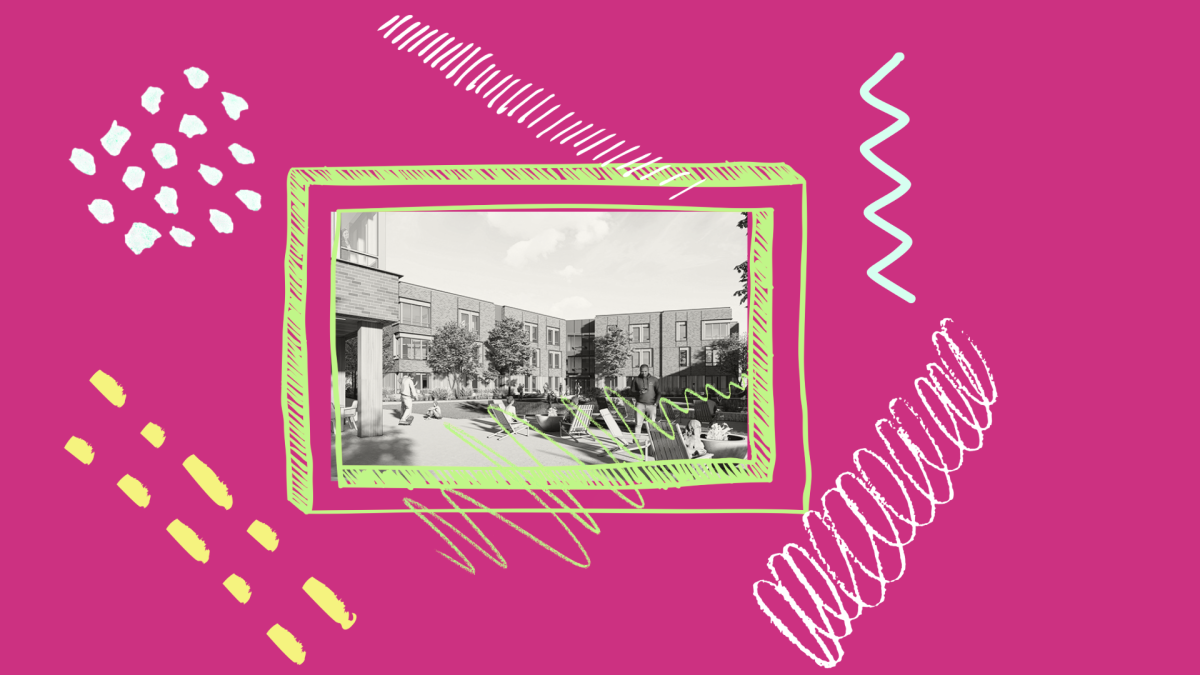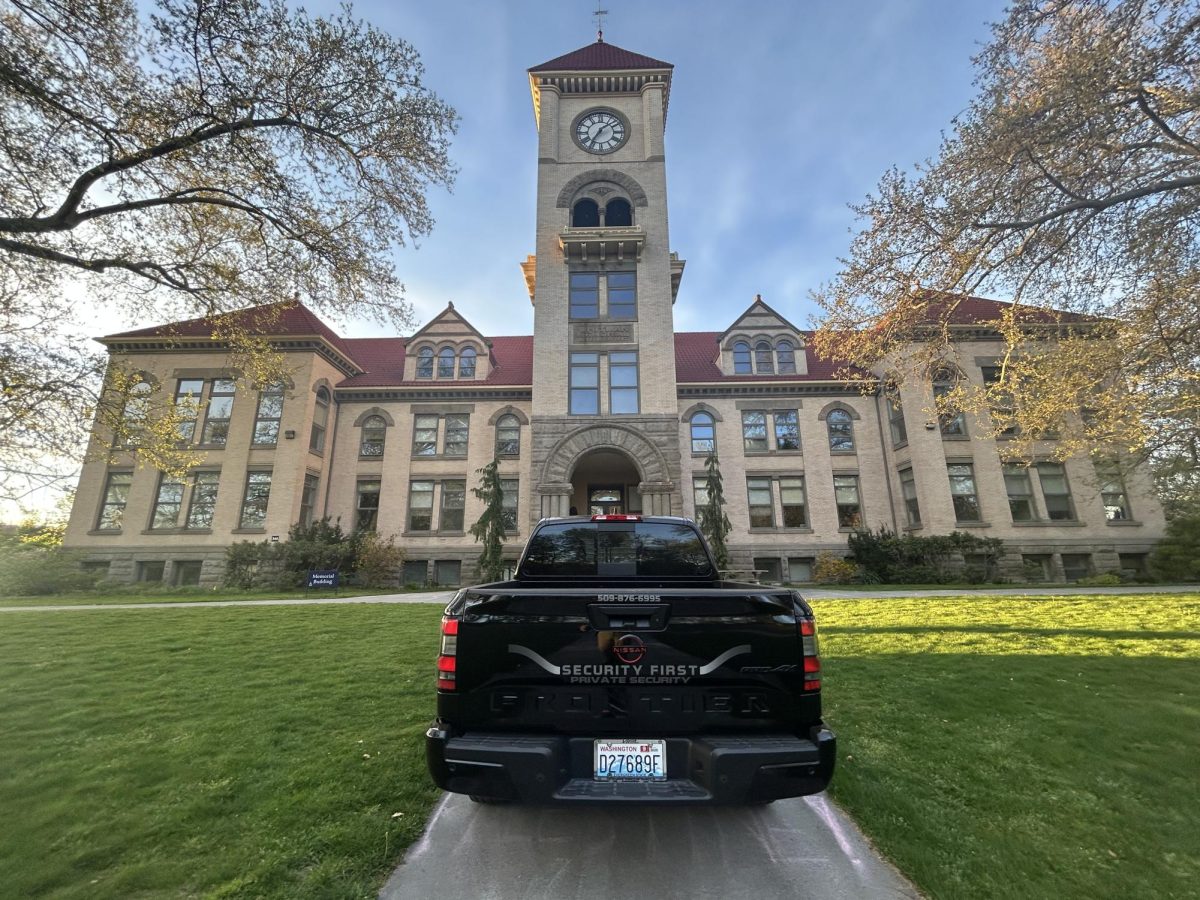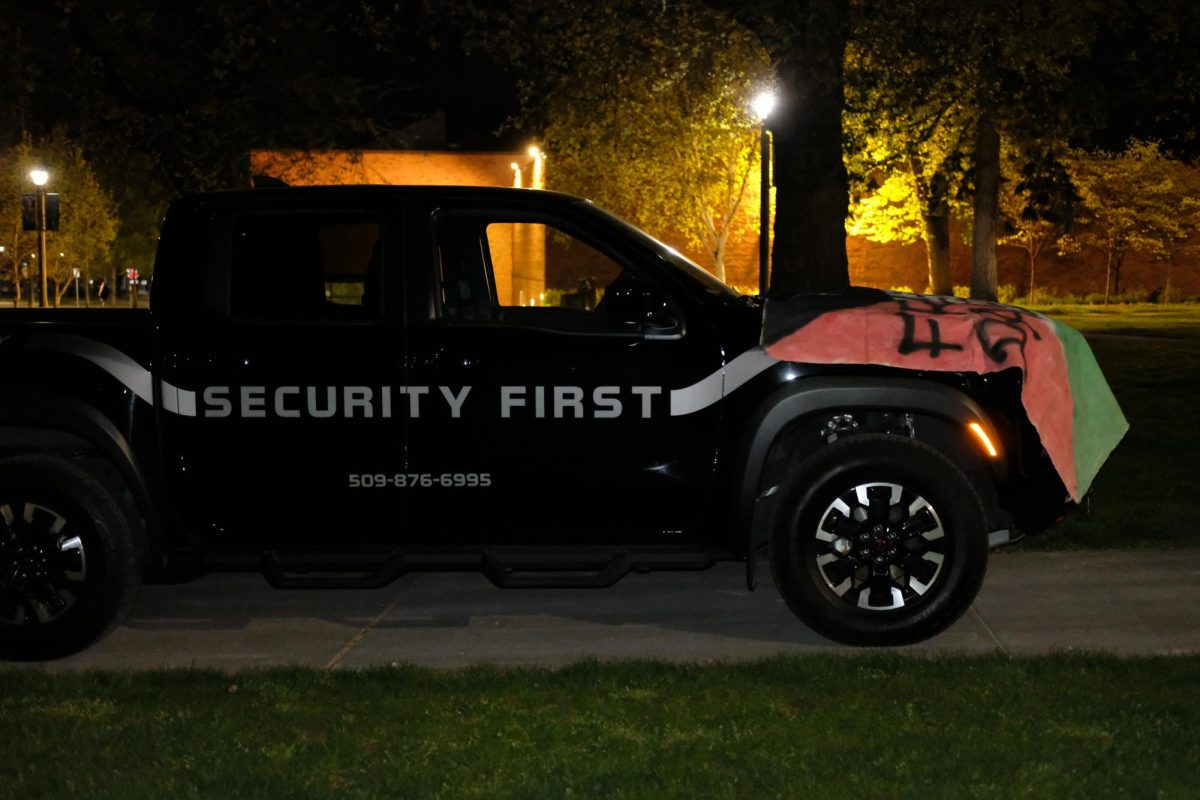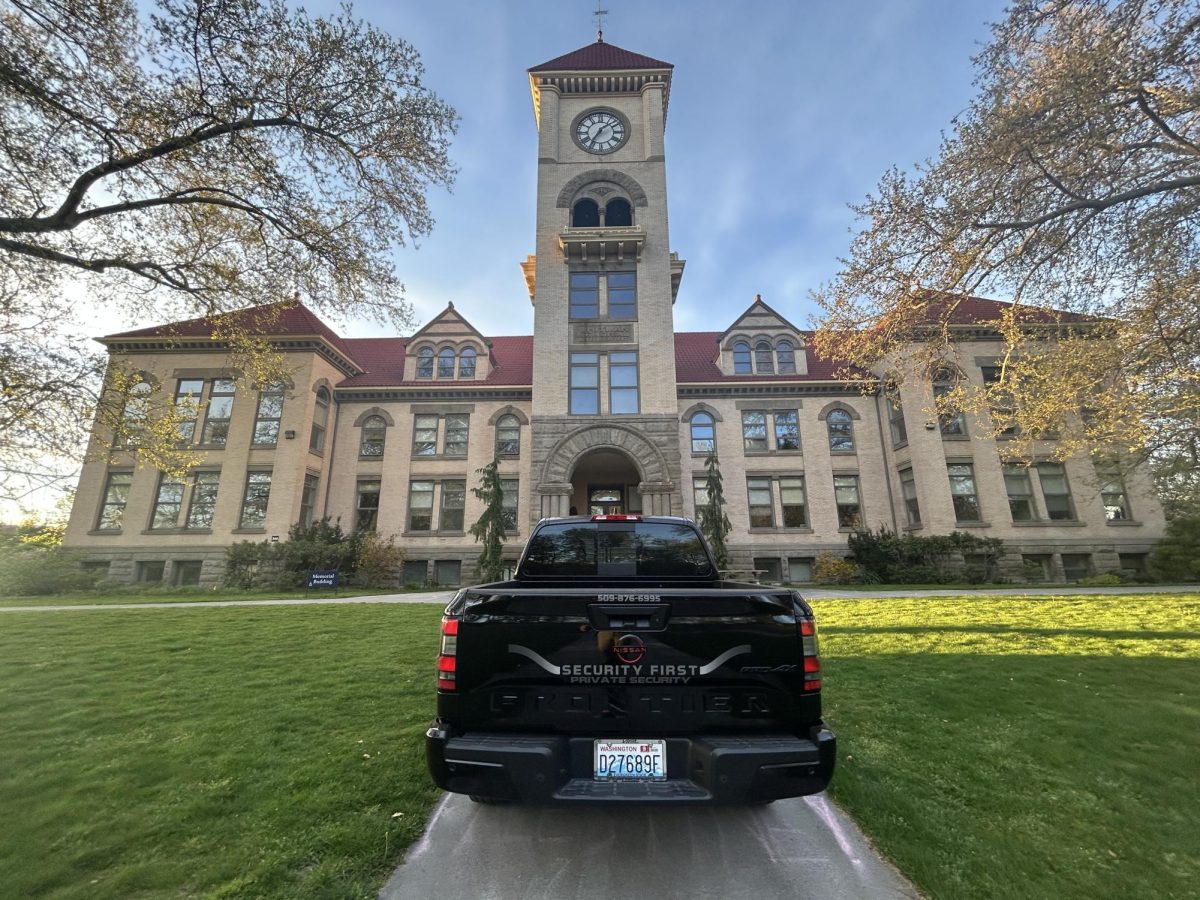Friday, April 11 – Earlier today, candidates running for various ASWC positions presented their platforms and answered questions during the ASWC election debates held at Maxey Auditorium. The debates showcased the candidates’ commitments toward convincing the voters to plug in the ballot, stressing issues like improving transparency, DEI, financial sustainability, and two-way communications at Whitman College.
The debates began with Eneida Likaj and Maetheany Ban, the only candidates for the finance committee, sharing their ideas, followed by candidates running for communications and DEI. A tough debate for the presidential position was contested by three candidates – Sybella Ssewakiryanga, Ricky Gonzalez and Vinson Russell – nominations and student development.
Finance Chair candidates Eneida Likaj and Maetheany Ban emphasized their dedication to increasing funds and enhancing transparency.
“We want to prioritize not just our year but set up good financial standing for the coming years,” Likaj and Ban said.
Likaj and Ban highlighted sustainable budgeting as an important part of their campaign, including a withdrawal of $100,000 to fund community projects to benefit Whitman students and the community long-term. Additionally, they also addressed plans to support students with legal resources, specifically as policies surrounding immigration policies change.
“Finance is willing to meet up with student development to support students for legal processes that might come up, ” Likaj said.
Communications Chair candidate Sam Walker focused mostly on a “two-way approach” and transparent communication, advocating for immediate sharing of on-meeting minutes, creating a user-friendly website interface, and using data analytics to understand student engagement better.
“Transparency is important for students to trust us,” Walker said. “We need to be more visible to everyone – literally – to be there to answer questions.”
DEI Chair candidates Aaliyah Howard and Anissa Cherif outlined key initiatives like establishing prayer rooms for Muslim students and distributing only sustainable menstrual products campus-wide. Cherif addressed accessibility issues, supporting international students, and engaging affinity groups more directly in DEI policy discussions.
“We are set up to work with GAIC and Jace Saplan. We want to make DEI a key student resource. If policies don’t work in our favour, we can always rebrand.” Cherif said.
Presidential candidates Ricky Gonzalez, Sybella Ssewakiryanga and Vinson Russell – the only position for which multiple candidates stood for – presented a diverse set of concerns they wanted to work on and be addressed as a part of ASWC’s future.
Gonzalez, running for the second time, focused on boosting cross-campus collaboration across faculty, administration and students and student belonging, building on recent DEI and sustainability achievements.
“I want to make sure students know there’s a place they can belong to – because there is always some place one can belong to. You should reach out to any senator so there’s a better chance your issue is heard,” Gonzalez said.
Ssewakiryanga highlighted the importance of transparency, advocating for clearer communication between students and the administration.
“Outside of the Senate, we need more cross-collaboration. It’s best if students know what we do and what the administration does – we don’t want misinformation to spread, ” Ssewakiryanga said.
Russell led his debate as a broader movement, advocating for more supportive attendance policies involving considerations for mental health, robust support for trans students and better campus accessibility.
“I would like to bring up every class to give students at least five personal days. This is something that definitely could be discussed. Building signs should be available for those with visual impairments,” Russell said.
Additionally, John Bannon and Isabele Eromosele ran for nominations and student development respectively, focusing on issues of community involvement, giving back and developing structures in order to support the less vocal members of the community.
Overall, the debate reflected a shared outlook among candidates to correct some of the past shortcomings of ASWC and foster a more responsive and sustainable student government. Voting will take place shortly, determining which of the candidates’ visions will guide Whitman’s student body in the coming year.














